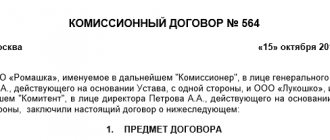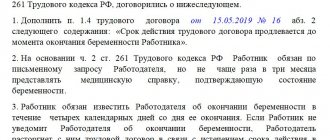There is no universal example of a contract for the supply of goods that is suitable for all entities. It is impossible to provide for all cases in one document. Otherwise, the agreement may turn out to be overly cumbersome, and such a document will be inconvenient to use.
Therefore, you need to decide what is most important and reflect it in the text. And what will not be included is somehow mentioned in the civil code.
We offer free contracts for the supply of goods for 2020 in a classic form. Individual characteristics are highlighted in a different color to better understand the logic of document compilation.
. . .
In order to correctly construct a supply agreement (adjust a standard sample), you need to know the subtleties when concluding and executing a transaction. Read about it below.
What is a supply agreement?
Delivery is a transaction for organizations and entrepreneurs . If an ordinary citizen is a participant in the transaction, for example, in the role of a buyer, then this is a different relationship - purchase and sale or retail sale.
Contractual relationships are based on interest in the product. For his sake, negotiations are conducted and mutual agreements are reached. And by product we mean everything that has at least some value. However, the following objects cannot be recognized as circulating inventory value:
- items prohibited for civil circulation (weapons, drugs, things obtained by criminal means, etc.);
- real estate (the turnover of these objects is regulated by special transactions);
- intellectual property (trademark, industrial design, works of scientific, literary, creative activity, etc.), special agreements are required to sell rights to it;
- intangible benefits (good name, business reputation, etc.);
- rights to material penalties and other claims;
- things to which the supplier does not have a legal right or which belong to an unlimited number of persons (for example, air).
The remaining provisions of the agreement are largely at the discretion of the parties, based on economic preferences, their business reputation, specific circumstances, and the presence of risks.
What types are there
We are not talking about a variety of inventory items here. The combination of features (a special set of conditions, rights, obligations) characteristic of individual relationships is taken into account:
- contracts for the purchase of products for state/municipal needs;
- international contracts;
- contracting agreement (purchase of agricultural products for the future);
- mixed contracts (for example, purchase of equipment with installation);
- trilateral transactions with elements of the purchase of goods, for example, leasing;
- barter relations (mutual supply);
- other types.
Cases in which the supplier's actions are considered serious violations
- The delivery deadlines for all goods or some individual batch were seriously violated.
- There was a delivery of goods of inadequate quality (with defects that cannot be eliminated) or goods that were not included in the contract form.
- Cases in which the buyer's actions are considered serious violations:
- The recipient refuses to pay for the product or its individual shipment.
- The recipient violated the payment terms.
- Multiple non-selection of goods
If one of the situations described above occurs, one of the parties to the transaction is obliged to notify the counterparty that the contract for the supply of goods is terminated. From this moment on, the contract is not considered valid unless specific terms are specified in it. If this is a mutual refusal, then the contract can be terminated at any time.
How to conclude a supply agreement correctly
The procedure for concluding an agreement is not very different from the general contractual procedure. But this is a very important moment. Extreme caution is needed, even with well-known partners who have a worthy reputation.
There are a few rules to remember:
1. Check your future partner . That is, find out whether there are legal proceedings against the other party (website “Card Index of the Arbitration Court”), whether there are enforcement proceedings (“Bank of Enforcement Proceedings”), the presence of alarming information on the Federal Tax Service “Transparent Business” service. You can also ask a query about a company/individual entrepreneur on the Internet in a regular search engine, perhaps there will be something useful.
In addition, it is recommended to request from the counterparty the appropriate list of documents for concluding an agreement (certified copies):
- charter;
- decision (minutes), order on the appointment of a director;
- extract from the Unified State Register of Legal Entities / Unified State Register of Individual Entrepreneurs;
- balance sheet for the last reporting period;
- partner card.
2. Take stock of market conditions . You should study the conditions of competitors available in the public domain. And also make an economic calculation of the profitability of the upcoming relationship. At least approximately, even if the transaction is a one-time supply agreement.
3. Agree on essential terms . To do this, substantive negotiations should be held, which must be carried out by the manager personally or by an authorized person. Then important agreements should be consolidated. A simple handshake is not enough. You need to draw up some kind of temporary document, for example, a letter of agreement with the main terms or a commercial proposal. This is called an offer and can be made by any party to the contract.
4. Develop a detailed project or carefully study the project presented by the counterparty . Who provides the project is determined by mutual agreement. Usually, whoever comes up with a proposal to start cooperation prepares the document. Although it could be different.
For those who are preparing the text of a future contract, it is enough to take a standard contract for the supply of goods as a basis and make their own individual additions. Civil legislation does not contain strict restrictions and prohibitions. Therefore, much is left to the discretion of the parties; you can set your own rules. If something is missed, the norms of the civil code will apply.
The one who receives the project must carefully read the text, as they say, from cover to cover. Because seemingly innocuous sections, for example, “other provisions”, “representations of the parties”, “final provisions”, may contain inconvenient rules and additional liability. This can make the contract onerous and unprofitable.
If there is disagreement with the proposed option or even deviations from the agreements reached, then in response they prepare comments on the draft or a protocol of disagreements.
5. Submit the project for review to lawyers and accountants . An indicative template of the contract, plus your comments on the project, should be shown to a lawyer and accountant. They additionally need to tell you what you expect from this transaction and what you would like to avoid.
A lawyer and an accountant will assess the risks of the project with their own eyes. After their conclusions, you can enter the final stage.
6. Finalize the contract . The matter will be done as soon as there is a document signed by competent persons in hand. The standard form of the contract is also mandatory if it is drawn up in writing on one form. In this case, it is not necessary for managers or authorized representatives (by proxy) to sign the document in front of each other, although this is desirable (especially if we are talking about an unfamiliar partner). The document will be valid if signed separately and then the corresponding copies are exchanged.
It is very important not to begin work until the contract is fully finalized. Including all applications: specifications, delivery schedules for individual batches, etc.
Supply contract in accordance with Art. 506 of the Civil Code of the Russian Federation
If the relationship between the parties is not limited to simple delivery on an invoice, but is formalized by an agreement, its essential and other conditions should be correctly determined. The supply of goods is regulated by the provisions of § 3 ch. 30 of the Civil Code of the Russian Federation (hereinafter referred to as the Civil Code of the Russian Federation). According to Art. 506 of the Civil Code, the supply contract is characterized as follows:
- parties - supplier and buyer;
- supplier - a seller engaged in business activities;
- the essence of the obligation is the obligation to transfer the goods;
- the product can be either produced or purchased by the supplier;
- the purpose of using the product is entrepreneurship;
- an alternative purpose for using a product is any other activity not related to personal consumption, use in the family, or household.
Important! Having identified these signs, the courts apply supply clauses to contracts. In this case, it does not matter what the contract is called, the parties, how the goods are transferred in accordance with the literal text of the document (clause 5 of the resolution of the Plenum of the Supreme Arbitration Court of the Russian Federation “On some issues related to the application of the provisions of the Civil Code of the Russian Federation on the supply agreement” dated October 22, 1997 No. 18 , hereinafter referred to as Resolution No. 18).
The supply contract should specify conditions such as the name of the product being supplied, delivery time, product range, quality and price, delivery method, procedure for reimbursement of transportation costs and prepayment issues. This can be done either in the text of the agreement itself or by highlighting them in a specification that is an appendix to the agreement.
What to pay attention to when drawing up a supply agreement
The text of the contract is important, but this is not limited to the written agreement. Applications also need to be approved and checked for risks. After all, they are considered integral parts of a bilateral agreement.
Typically, an application is drawn up when numerous and varied products with complex characteristics are to be supplied. It is irrational to describe all this in the text of the underlying document. In business, such an application is usually called a specification.
Question: Is the specification required for the contract in such cases?
No, there is no strict obligation, but if this application is not there, it will be difficult to fulfill the terms of the deal. There may be cases where the contract is recognized as not concluded, and other controversial issues arise. Therefore, annexes tend to be drawn up and agreed upon in the same way as the main document. There is no clearly established specification form. But most often they indicate:
- Input data , that is, details (number, date, link, that this is an annex to a specific agreement), are called the parties;
- Basic description . The official name of the product, its quantity, quality characteristics, compliance with GOSTs, specifications, availability of additional components, technical data sheets, certificates, etc. are indicated. Sometimes the description is made in the form of a table.
- Additional data . Sometimes, for convenience, the specification includes data on the location, timing of product delivery, method of transportation, payment stages, and the like. It is convenient to do this if, within the framework of one agreement, many deliveries are carried out on different conditions.
Important Terms
The supply agreement can be drawn up according to the usual standard, paying special attention to the sections on:
- price and terms of payment for the goods;
- product quality requirements;
- information about quantity, assortment and completeness;
- delivery method;
- delivery times;
- conditions for acceptance of goods under the supply contract;
- responsibility;
- grounds for unilateral refusal and termination of the transaction;
- applications.
In practice, it occurs when important aspects of an agreement are denoted by a special Latin abbreviation (FCA, CIF, DAT, EXW, etc.). These are combinations of obligations of the parties among themselves, which are provided for by international trade standards. A detailed explanation is contained in the Incoterms 2010 rules. But the practical application of these rules makes sense when it comes to international contracts, since the mandatory actions include going through customs procedures.
What the supplier needs to know
The profitability of the contract for the supplying party will be ensured when certain issues are properly thought out.
Delivery . The terms of delivery of goods must exclude unforeseen expenses. The seller must know exactly what is required of him. By what time and where should delivery be made, who will have to unload. Care should be taken to ensure that the shipping documents (bill of lading, waybill, bill of lading, etc.) are ready at the time of delivery and that the buyer’s representative is on site with a seal. So that immediately after acceptance I can document the fact of transfer of products.
If you do not specify anything about delivery, then by default, inventory items are delivered to the buyer's location.
It is most convenient for the seller to issue goods from his warehouse, notifying the recipient that the recipient is ready. This must be specified in the contract.
Payment period . The seller-supplier is interested in ensuring that the maximum payment period for the goods is reasonable, that is, as short as possible. In any case, this period must be clearly stated, excluding the possibility of the buyer unfairly delaying payment. Therefore, dates or periods must be clear in the text. Abstract formulations should be avoided, such as “after fulfillment of the delivery obligation”, “after acceptance of the goods for balance”, etc.
At the same time, if the payment period is not specified at all, then payment must be made on the day of delivery of the goods, or within 7 days from the date of request.
Insurance . Before the delivery of the cargo, the seller-supplier is its owner and all risks fall on him. But the cargo will be in the warehouse, loaded, transported, unloaded, and the like. Therefore, there are too many situations that threaten damage or even destruction of products. To avoid possible losses, it is better to insure the cargo.
Ideally, the costs of insurance should be at the expense of the buyer or at least partially compensated for these costs. Therefore, insurance amounts can be included in the price.
Stopping shipment . If the cargo will be transferred in parts, and the recipient will not pay for the previous installments, then a clause should be provided that will allow further shipment to be suspended until full payment is made. A similar rule is briefly provided for in paragraph 5 of Art. 486 Civil Code. Therefore, it is advisable to describe in more detail.
Pledge of goods . This is also a safety net. The point is that the transferred products remain pledged to the seller until full payment. The deposit is set automatically when there is an installment plan (clause 5 of Article 488 of the Code). If it turns out that the buyer is unable to find the money, the products can be confiscated. In this case, it is necessary to indicate in the text that an application for bail can be made out of court. This will also help if the buyer has enforcement proceedings against the bailiff. Then the goods will not be confiscated as free from the rights of third parties. The seller will have the priority right to receive money from the sale of the pledged goods at auction.
What Should Buyers Worry About?
The purchaser of the product has its own provisions in the agreement that require elaboration.
Return of cargo . The conditions for returning goods must be in case of any problems with the cargo: be it of inadequate quality, be it of a missing quantity, or incompleteness. It should be clarified that the return is made at the request of the buyer by the seller and at his expense. Also, if a return was declared and not carried out within a certain period, then the buyer is released from responsibility for its safety, or he is entitled to monetary amounts for storing such cargo.
Preferred payment . Especially if you are dealing with a new partner, then you should provide for payment for products upon delivery, or even better, in installments. In any case, try to avoid prepayments or advances.
The transfer of ownership may occur at different times depending on the agreement. For example, from the moment of notification of readiness for shipment or upon transfer of technical documentation or at the time of receipt of goods, etc.
The best option is when there is the following wording: “The transfer of ownership of the goods to the buyer is carried out after successful acceptance of the goods with the receipt of technical documentation and shipping documents. From this point on, the risk of accidental death and damage is borne by the new owner.”
Container and packaging . It ensures maximum safety of the cargo, including from invisible defects. In this regard, the seller should require packaging material no worse than the cargo itself.
Quality assurance . The law provides for certain guarantees by default (Article 470 of the Civil Code), but it is better to devote its own section to this in the text of the contract. Where to provide for the longest possible warranty period (more than 2 years for non-food products, for food products no less than the expiration date), the seller’s response time to a complaint, liability for inaction and a list of powers of the recipient of the product. Including:
- refusal of products with compensation for losses;
- free repair;
- elimination at your own expense with re-billing of costs to the seller;
- replacement with a new product;
- cost reduction.
Cost details . If a dispute arises, you need to know what the cost is made up of, that is, the price for the cargo itself, the cost of transportation, storage, insurance, etc. This allows you to correctly demand the fulfillment of certain obligations of the supplier and collect the appropriate amounts.
The issue of VAT should also be clearly disclosed. Its allocation is necessary for further deduction by the buyer. Therefore, the price is indicated with the note “including VAT” or “the seller is a payer of the simplified tax system and VAT is not taken into account.”
Agreement to a major deal . If the contract is for a large amount, you need to obtain from the seller the minutes of the meeting of the organization’s participants approving the transaction, or a certificate that the transaction is not large for the seller. Such documents are not needed if the supplier is supplying on a professional basis, that is, for him this is a normal everyday transaction.
Agreement for the sale and delivery of goods
The Supplier, with the consent of the Buyer, may deliver the Goods by unscheduled transport, in its own, factory or rented tanks (cars).
3. PRICE, CONDITIONS AND PAYMENT PROCEDURE
3.1. The price for the Goods is established and indicated in the Specification Appendix, taking into account all taxes and is valid only for this Agreement and only in relation to each individual Specification Appendix.
3.2. Payments for the supplied Goods are made between the Supplier and the Buyer by transferring the latter to the Supplier within the time period specified in each individual Specification Appendix, an amount equal to the full cost of the supplied Goods and the costs of its transportation.
3.3. Settlements between the Supplier and the Buyer are made in rubles. Amount of amounts to be transferred by the Buyer:
3.3.1. When paying for the Goods after shipment, it is determined according to the quantity of the Goods actually delivered;
3.3.2. In case of another form of payment, it is indicated in each separate Specification Appendix and is specified in accordance with the quantity of Goods actually delivered.
3.3.3. Reconciliation of mutual settlements between the Supplier and the Buyer is carried out within 10 (ten) days from the date of acceptance of the goods from the consignee.
3.3.4. In the event of short delivery of the Goods in a separate delivery period, the Supplier is obliged to make up for the underdelivered quantity of the Goods in the next delivery period or reimburse the buyer for the difference for the undelivered Goods. At the written request of the Buyer, the amount of debt must be transferred to his current account within 5 days from the date of sending the specified request.
3.4. If the Supplier's selling prices for Products supplied to the Buyer increase, the Supplier notifies the Buyer in writing (by telegram, fax) within 3 days.
3.5. When the Buyer pre-pays for the supplied Goods, in the event of a delay in delivery, the Supplier transfers to the Buyer’s bank account all funds transferred by the latter in advance payment within three banking days from the expiration of the delivery period specified in the Specification Appendix. If the deadlines for transferring funds are violated, the Supplier shall pay the Buyer a penalty in the amount of 0.15% of the amount to be returned for each day of delay.
4. QUALITY, DELIVERY AND ACCEPTANCE OF GOODS
4.1. The quality of the supplied Goods must comply with GOST or specifications of the manufacturer, which is certified by a certificate (passport), one copy of which is sent with the cargo.
4.2. Acceptance of the Goods in terms of quantity is carried out in accordance with Instruction P-6 and in terms of quality in accordance with Instruction P-7 with subsequent amendments and additions.
5. SANCTIONS
5.1. In everything related to the implementation, modification, and termination of the Agreement, the parties are responsible in accordance with the current legislation of the Russian Federation.
5.2. For delay in fulfilling obligations under the contract (not fulfilling them in full), the guilty party pays a penalty in the amount of 0.15% of the amount of the overdue (underfulfilled) obligation for each day of delay, but not more than the amount of the unfulfilled obligation.
6. FORCE MAJOR
6.1. Neither party will be liable for complete or partial failure to fulfill its obligations if their failure is a consequence of force majeure: fire, flood, earthquake, other natural disasters, embargoes, war, military operations of any nature, unrest caused by ethnic conflicts, blockade, strike, publication by Governments of laws or other regulations, if their publication affected the implementation of the Treaty. The deadlines for fulfilling obligations in this case are postponed in proportion to the time during which such circumstances will remain in effect, but not more than two months.
6.2. The party for which it is impossible to fulfill obligations for the specified reasons must immediately notify the other party of the occurrence and termination of such circumstances no later than 5 days from the moment of their occurrence, and confirm their effect by acts of the competent authorities.
7. DISPUTE RESOLUTION
7.1. In the event of disputes and disagreements arising under this agreement and in connection with it, the parties will take all measures to resolve them through negotiations.
7.2. If the parties do not come to an agreement, then the disputes must be resolved in accordance with the current legislation of the Russian Federation in the Arbitration Court, at the location of the plaintiff, with the obligatory filing of a pre-trial claim.
7.3. Claims must be submitted in writing and considered by the parties within 20 days from the date of their receipt.
8. FINAL PROVISIONS
8.1. All agreements, negotiations and correspondence between the parties on the issues set forth in the Agreement that took place before its signing shall become invalid from the date of signing of the Agreement.
8.2. The acceptance and offer to this Agreement, Appendix-Specifications, as well as any changes and additions to the agreement, signed by the parties and sealed, transmitted using fax, have the legal force of the original, and the parties undertake within 10 (ten) days from the date of signing documents by fax, send by mail to the other party a signed and stamped copy of the agreed upon agreement, agreement on changing the terms of the agreement.
9. ADDRESSES AND DETAILS OF THE PARTIES
9.1.Buyer
:
Address: _________________________________________________________
Tel.: ______________________, Fax: ________________________________
Industry code according to OKONKH: ______________, code according to OKPO: _______________
R/S ______________________________________________________________
city ______________________________, housing estate ______________________________
BIC _______________, TIN __________________
9.2.Supplier
:
Address: ____________________________________________________________
Tel.: (________) _______________________, Fax: _______________________
OKONH code: ______________________, OKPO code: _____________________
Account _________________________________ in ______________________________
city _____________________, c/s _____________________________________,
BIC _________________, TIN ___________________.
Bank postal address: _________________________________________________.
| For the Supplier: _____________________/______________/ | for the Buyer: ___________________/ _____________./ |
Sample of a one-time supply agreement
Supply AGREEMENT No. _______
" " _________ 2020 Novosibirsk
Limited Liability Company “Name”, hereinafter referred to as the Supplier, represented by the Director ______________, acting on the basis of the Charter, on the one hand, and ______________________, represented by ______________________________, acting on the basis of ________________, hereinafter referred to as the “Buyer”, on the other The parties, collectively referred to as the “Parties,” have entered into this agreement as follows:
1. The Subject of the Agreement
1.1. Under this agreement, the Supplier undertakes to supply (transfer into ownership), and the Buyer undertakes to accept and pay for _______________ (type of goods) (hereinafter referred to as the “Goods”) in quantity, assortment and at prices agreed upon by the Parties in Appendix No. 1 to the agreement, and the Buyer undertakes to accept and pay for the Goods in accordance with the terms of this agreement.
2. General terms of delivery
2.1. Delivery of the Goods is carried out on the terms of self-pickup of the Goods from the Supplier's warehouse located at the address: Novosibirsk, st._____________________. 2.2.
Responsibility
The liability of the parties has two meanings.
- compensation for possible losses from an unscrupulous partner;
- a measure of forcing a partner to fulfill the contract as expected in order to avoid financial costs.
Responsibility is expressed in the obligation to pay fines, penalties and other monetary obligations.
The basis for civil punishment may be violation of deadlines, low-quality products, requirements for packaging, failure to perform certain actions, for example, insurance, notification of the readiness of cargo for transfer, etc. The amount of sanctions is established by mutual agreement, but reasonableness must be observed.
Sanctions must be included in the text of the agreement in a way that is fair for both parties, so that the agreement is not viewed as enslaving.
Execution
After completing the registration, you should begin executing the transaction. Here we need double control for:
- by their employees. A copy of the text is provided to the accounting department, legal department and other responsible persons and instructions are given for the exact fulfillment of the terms of the contract. The manager does not withdraw from the process and from time to time must be interested in the state of affairs.
- actions of the partner. It is necessary to assign an employee who can monitor the performance discipline of the counterparty. In case of deviation, immediate response measures must be taken.
Sometimes, after all approvals, circumstances change, for example, the price of goods under a supply contract has changed due to changes in the cost of products manufactured by the manufacturer. Then you need to make a proposal to the other party to make changes to the current document.
If approval is received from the partner, then the changes must be recorded in an additional agreement in writing. A verbal agreement is not permitted and may be refused.
Thus, an agreement with amended terms will be valid if there is a main document and an additional agreement to it, as an integral part.
In general, it is better to confirm any actions within the framework of contractual relations with written evidence. For example, if this is a transfer of goods, then a delivery note or an acceptance certificate is needed; if payment is to be made, then an invoice should be presented for payment.
By the way, the invoice should be presented in any case, since it indicates the exact bank details, specific amount, and more. This will avoid technical errors and resolve other issues.




![My business [CPS] RU](https://disagroup.ru/wp-content/uploads/moe-delo-cps-ru-330x140.jpg)





